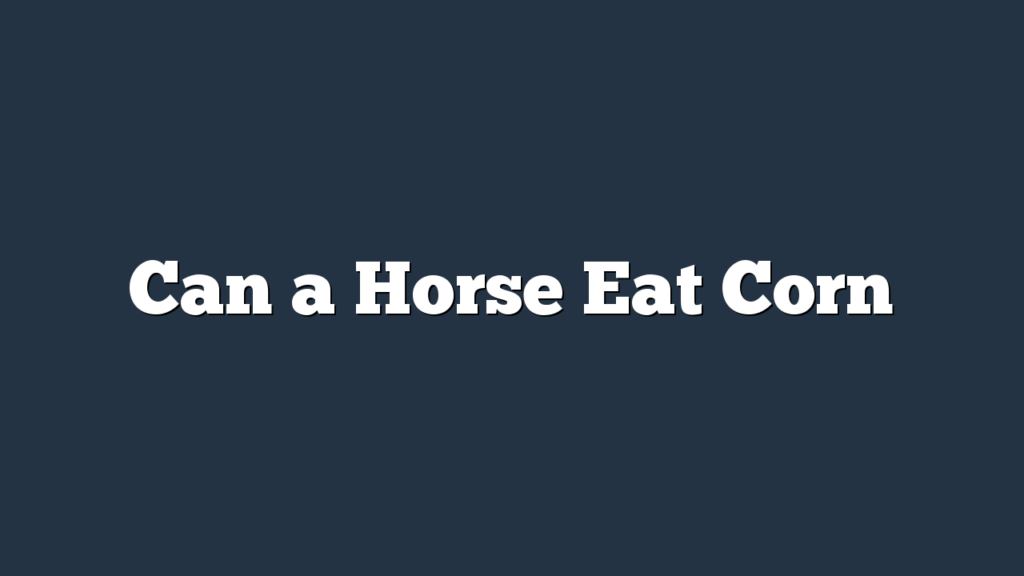Did you know that feeding grapes to horses can be risky? While horses may enjoy the taste of grapes, they can actually be harmful to their health. This article will explore the nutritional value of grapes for horses, as well as the potential risks and signs of grape toxicity.
We’ll also provide safe alternatives and expert tips for maintaining a balanced and healthy diet for your equine friend.
So, before you offer grapes as a treat, read on to learn more!
The Nutritional Value of Grapes for Horses
Grapes offer limited nutritional value for horses. In fact, they can be quite harmful due to grape toxicity. Feeding grapes to horses can lead to serious health issues, such as kidney failure and even death. Therefore, it’s crucial to avoid feeding grapes to your equine friend.
Fortunately, there are plenty of grape alternatives that can provide your horse with the necessary nutrients without the risk of toxicity. One such alternative is apples. Apples aren’t only safe for horses to consume, but they’re also rich in vitamins and minerals. Another option is carrots, which aren’t only crunchy and delicious but also packed with nutrients like beta-carotene.
Additionally, hay and grass should always be the main sources of nutrition for horses, supplemented with a balanced feed specifically designed for their dietary needs.
Potential Risks Associated With Feeding Grapes to Horses
Feeding horses grapes can pose significant risks to their health and well-being. While grapes may be a delicious treat for humans, they can be potentially dangerous for horses. One of the main concerns is grape toxicity, which can occur when horses consume large amounts of grapes or grape products.
Grape toxicity can lead to various symptoms in horses, including gastrointestinal upset, diarrhea, colic, and even kidney failure. These potential dangers make it important for horse owners to be aware of the risks associated with feeding grapes to their equine companions.
If you suspect that your horse has ingested grapes or is showing any grape toxicity symptoms, it’s crucial to seek veterinary help immediately. Prompt medical attention can help prevent further complications and provide appropriate treatment for your horse.
To avoid these risks altogether, it’s recommended to not feed grapes to horses. Instead, opt for safer and more suitable treats, such as carrots, apples, or hay cubes. Remember, the health and well-being of your horse should always be your top priority, so choose their treats wisely and consult with a veterinarian if you have any concerns.
Signs and Symptoms of Grape Toxicity in Horses
If your horse has ingested grapes or is experiencing grape toxicity, it’s important to be aware of the signs and symptoms to ensure prompt veterinary attention. Grape toxicity in horses can lead to serious health issues and shouldn’t be taken lightly. One of the main symptoms of grape toxicity is gastrointestinal upset, which can include diarrhea, colic, and abdominal pain. Additionally, horses may exhibit signs of lethargy, weakness, and loss of appetite. It’s crucial to monitor your horse closely if you suspect grape toxicity, as the condition can progress rapidly.
When it comes to treating grape toxicity in horses, immediate veterinary intervention is essential. The veterinarian may induce vomiting or perform gastric lavage to remove any remaining grapes from the horse’s system. Supportive care, such as intravenous fluids and medications to alleviate symptoms, may also be provided.
Prevention is key in avoiding grape toxicity. Always ensure that grapes are kept out of reach of horses, as even a small amount can be harmful. Educate yourself and others on the potential dangers of feeding grapes to horses. Implement safety precautions such as securely storing grapes and other potentially toxic foods away from the horse’s environment.
Safe Alternatives to Grapes for Equine Treats
To provide safe and healthy alternatives for your horse’s treats, there are various options that can be considered. While grapes can pose potential risks to horses, there are plenty of other delicious and safe alternatives that you can offer as treats. These alternatives not only satisfy your horse’s taste buds but also ensure their well-being.
| Safe Alternatives | Nutritional Benefits | Recommended Serving Size |
|---|---|---|
| Carrots | High in beta-carotene | 1-2 medium-sized carrots |
| Apples | Rich in vitamins | 1 small apple |
| Peppermint candies | Aids digestion | 1-2 candies |
Carrots are a popular choice among horse owners due to their crunchy texture and natural sweetness. They are packed with beta-carotene, which promotes good eye health and a strong immune system. Apples, on the other hand, are not only tasty but also provide essential vitamins like vitamin C and potassium. Lastly, peppermint candies can be a great option as they not only freshen your horse’s breath but also aid in digestion.
Moderation Is Key: How Much Grape Is Safe for Horses
When it comes to feeding grapes to your horse, it’s important to understand the importance of moderation. While grapes can be a tasty treat for your equine friend, it’s crucial to be aware of the potential risks associated with grape toxicity.
To ensure the safety of your horse, here are some key points to keep in mind regarding grape portion size:
- Limit the amount: It’s recommended to feed grapes to your horse in small quantities. A few grapes here and there can be a delightful surprise, but excessive consumption can lead to health issues.
- Watch for adverse reactions: Every horse is unique, and some may be more sensitive to grapes than others. Keep a close eye on your horse for any signs of discomfort or digestive upset after eating grapes.
- Consider the horse’s size: A larger horse may be able to handle a few more grapes compared to a smaller one. Adjust the portion size accordingly to ensure it’s appropriate for your horse’s size and weight.
- Consult with your veterinarian: If you have any concerns about grape toxicity or the ideal grape portion size for your horse, it’s always best to consult with your veterinarian. They can provide personalized advice based on your horse’s specific needs.
The Benefits of Including Fruits in a Horse’s Diet
Including fruits in your horse’s diet can provide numerous benefits. One of the most important benefits is the importance of variety in a horse’s diet. Just like humans, horses benefit from a diverse range of nutrients found in different fruits. By including a variety of fruits, you can ensure your horse gets a well-rounded diet and receives all the essential vitamins and minerals it needs to stay healthy.
When introducing new fruits to horses, it’s crucial to do so gradually. Horses have sensitive digestive systems, and sudden changes in their diet can lead to digestive upset. Start by offering small amounts of the new fruit and observe how your horse reacts. If there are no adverse effects, you can gradually increase the amount over time.
In addition to providing essential nutrients, fruits can also act as a natural source of hydration for horses. Fruits like watermelon and apples have high water content, which can help keep your horse hydrated, especially during hot weather or intense exercise.
Remember to always wash and remove any seeds or pits from the fruits before feeding them to your horse. By incorporating a variety of fruits into your horse’s diet and introducing them gradually, you can provide them with the necessary nutrients and contribute to their overall well-being.
Expert Tips for Feeding Horses a Balanced and Healthy Diet
For a balanced and healthy diet for your horse, it’s important to follow expert tips. Here are four key tips to keep in mind when feeding your horse for a balanced diet:
- Provide good quality forage: Horses are natural grazers and their digestive system is designed to process a continuous supply of forage. Make sure to offer them good quality hay or pasture to meet their nutritional needs.
- Consider their energy requirements: Horses have different energy requirements depending on their age, activity level, and overall health. Consult with a veterinarian or equine nutritionist to determine the appropriate amount of calories your horse needs to maintain a healthy weight.
- Balance their nutrient intake: Horses require a range of essential nutrients, including carbohydrates, proteins, fats, vitamins, and minerals. A balanced diet should include a mix of these nutrients to support their overall health and well-being.
- Limit concentrates and treats: While concentrates and treats can be a part of a horse’s diet, they should be given in moderation. Excessive consumption of concentrates or treats can lead to weight gain, digestive issues, and other health problems.
Frequently Asked Questions
Can Horses Eat Other Types of Fruit Besides Grapes?
Horses can eat a variety of fruits besides grapes. When considering a horse’s diet, it’s important to offer fruit alternatives that are safe and beneficial, such as apples, pears, and bananas.
Are There Any Health Benefits to Including Fruits in a Horse’s Diet?
Including fruits in your horse’s diet can provide various health benefits. Fruits are packed with essential nutrients and vitamins that contribute to the overall well-being of your horse. They offer a valuable nutritional value that can support your horse’s health.
How Can I Ensure That My Horse Is Getting a Balanced and Healthy Diet?
To ensure your horse’s diet is balanced and healthy, follow horse feeding guidelines and provide essential nutrients. Consider factors like age, weight, and activity level. Consult a veterinarian for specific recommendations.
Are There Any Alternatives to Grapes That I Can Safely Feed My Horse as Treats?
Looking for alternative treats for your horse? There are plenty of safe fruits you can feed them instead of grapes. From apples to carrots, these options will keep your horse happy and healthy.
Are There Any Signs or Symptoms That Indicate My Horse May Be Experiencing Grape Toxicity?
If you’re wondering about signs and symptoms of grape toxicity in horses, it’s important to know that horses should not consume grapes. Keep an eye out for symptoms like diarrhea, colic, and kidney problems.
Conclusion
In conclusion, while grapes can be a tasty treat for humans, they should be avoided when it comes to feeding horses. Grapes can pose potential risks and toxicity to horses, leading to serious health issues. It’s important to prioritize their safety and provide them with safe alternatives and a well-balanced diet.
Remember, moderation is key when it comes to introducing new foods to your equine companion.



